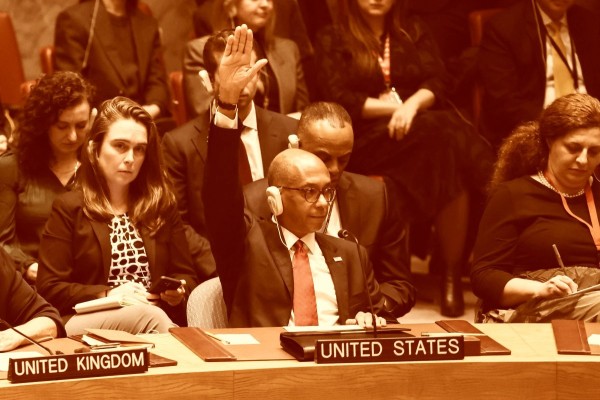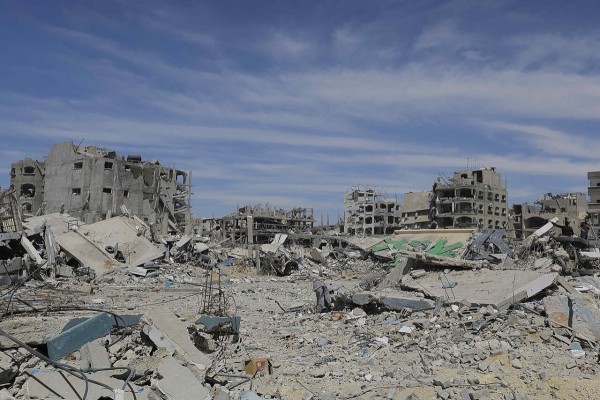Biden’s sanctions against Afghanistan are starving millions
Economic warfare is threatening to kill more Afghan civilians than two decades of war

An Afghan girl in Balish Kalay Village, Urgun District, Afghanistan, March 27, 2011. Photo from Flickr.
After the Biden administration withdrew US ground forces from Afghanistan, paving the way for the Taliban’s lightning sprint to Kabul, the country gradually disappeared from media headlines. The humiliating spectacle of a two-decade occupation abruptly crumbling before the world dominated the news for several weeks, with the majority of both conservative and liberal commentators criticizing Biden’s actions, but the outrage was quickly subsumed by news of Russia’s military buildup on the Ukrainian border. On the US right, the conversation has now shifted from “Biden is weak, if Trump was president the withdrawal wouldn’t have been so chaotic,” to “Biden is weak, if Trump was president Putin wouldn’t have invaded Ukraine.”
Despite the bipartisan denunciation of Biden’s actions, it is hard to imagine that the US-led war on Afghanistan could have ended any other way. The war was never fought for the “hearts of minds” of Afghans, nor for their material wellbeing—the NATO forces were occupiers, and they generally behaved in ways that did not endear them to the Afghan people at large. The Northern Alliance warlords that NATO placed in positions of power were in many cases just as brutally sectarian and misogynistic as the Taliban, and on top of that, they were openly corrupt. In the words of anti-war Afghanistan veterans Matthew Hoh and Danny Sjursen, “[the US] replaced a theocratic repressive government with a kleptocratic repressive government,” and this allowed the Taliban to remake themselves into “the national resistance organization they always wanted to be.”
Of the roughly US$2 trillion that Congress approved for the US war effort, between 80 and 90 percent returned to the US economy to enrich defence contractors, aid organizations, and other domestic actors. “Maybe the waste of two trillion dollars was the point,” wrote John Dolan in the aftermath of the US defeat, adding that if one actually researches how occupation funds were distributed, “you see how little of it has anything to do, even in theory, with helping Afghans. Most of it is money for keeping untenable bases in Afghanistan and the rest is cost-of-doing-business, including a giant chunk for veterans’ benefits.” In a clear demonstration of this fact, the New York Times reported that only $24 billion (1.2 percent of the $2 trillion war bill) went toward developing the Afghan economy.
“The wonderful thing about [war] spending,” Dolan outlined:
is that it shunts tax dollars directly to the stockholders, connected military firms like Raytheon, Lockheed Martin, et al., legislators, military brass milking the DoD/corporate link, and even lowly CIA contractors like Johnny Spann, without angering a single taxpayer or benefitting them in any way.
Since the withdrawal of occupation forces, and the burying of news from Afghanistan under the avalanche of reports from Ukraine, the US has not halted its attempts to dominate the Central Asian country. It has adapted them. The Taliban has clearly demonstrated its ability to outperform the corrupt, lumbering US war machine, so in the absence of the possibility of military victory, the Biden administration has begun waging economic war against the entire population of Afghanistan.
Several months after the US troop withdrawal, the Biden administration seized $7 billion of Afghan foreign reserves held in New York. On February 11, 2022, Biden signed an executive order forcing US financial institutions to transfer Afghan government funds into the Federal Reserve Bank, depriving the state of much-needed foreign assets at a time of catastrophic post-war instability in which the health care system is collapsing and millions of citizens are on the verge of starvation.
@ceprdc's @MarkWeisbrot on worsening humanitarian crisis in #Afghanistan: "This is a political miscalculation as well as a moral one." Biden's economic #sanctions could condemn over HALF the civilian population to death & starvation. #UnfreezeAfghanistanhttps://t.co/LFDFxoepzu
— CEPR (@ceprdc) March 10, 2022
Since August, food prices in Afghanistan have risen 40 percent. A recent UNICEF report reveals that 22.8 million people in Afghanistan (well over half the population) are facing “acute food insecurity,” while around one million children under the age of five are “at risk of dying due to severe acute malnutrition.” Speaking to the US Senate, the International Rescue Committee (which has thousands of staff in Afghanistan) blamed the Biden administration for the widespread risk of starvation in the country: “The proximate cause of this starvation crisis is the international economic policy which has been adopted [by the US] since August, and which has cut off financial flows not just to the public sector, but in the private sector in Afghanistan as well.”
Half of the $7 billion that the Biden administration stole from the Afghan state will go to “humanitarian aid,” an ironic promise given that US foreign policy is clearly at fault for the starvation crisis. The administration plans to give the other $3.5 billion to the families of those who died on 9/11, a perplexing move given that the Taliban did not perpetrate the 9/11 attacks. Some of the relatives have stated that they don’t want the money, since they know that the confiscation of these funds from the Afghan state will cause enormous human suffering in that country. Phyllis Rodriguez, whose son Greg was killed in the World Trade Center attack, stated: “The suffering of the Afghan people at the hands of the United States and its allies is reprehensible. This is adding insult to injury.”
Economic sanctions are one of the most useful instruments in the toolbox of imperialism, which is why the US maintains debilitating sanctions regimes against designated enemies including Cuba, Venezuela, Nicaragua, Iran, Syria, North Korea, and others. Some estimate that US sanctions harm around one third of the world’s population.
When maximally applied, sanctions can clean out the foreign reserves of a targeted country while totally isolating them from international trade. They paralyze the social and economic development of entire nations and inflict violence against their populations by denying them access to food, medical supplies, and other resources that are necessary for the fulfilment of a long and comfortable life. This is their sole intention: they are designed to make life so intolerable for the citizens of a targeted country that they organize and overthrow the “enemy” state that governs them.
Richard Nephew, the lead sanctions expert on Obama’s Iran team and Biden’s former deputy special envoy for Iran, has openly admitted that US sanctions are designed to destroy the economies of “bad actors” and inflict pain on civilian populations. In his 2017 book The Art of Sanctions, he boasts that Obama’s policies toward Iran “contribut[ed] to shortages in medicine and medical devices in Iran through sanctions he helped design, making these necessities too costly for the average Iranian.” US sanctions against Iran, which Nephew calls a “tremendous success,” also tripled chicken prices and in his words caused a variety of “unforeseen knock-on effects that played into our effort to increase the sense of pressure and unease within the Iranian economy.”
Nephew writes that sanctions can force targeted states into submission with just as much efficacy as a military invasion, and with much less public outcry. “Just because the damage wrought by sanctions may be less visible,” he explains, “it need not be less destructive, particularly for economically vulnerable populations that may be affected.”
Anyone who claims that US sanctions do not target civilian populations clearly has not consulted the opinions of those who design these policies, or their belief that the price, to quote Madeleine Albright, “is worth it.” The Biden administration’s seizure of Afghanistan’s foreign reserves is one of the most recent events in the atrocious history of US economic warfare against its perceived enemies, and it is part of a concerted effort to make the entire Afghan population pay for the Taliban’s victory.
Owen Schalk is a writer based in Winnipeg. His areas of interest include post-colonialism and the human impact of the global neoliberal economy. Visit his website at www.owenschalk.com.










